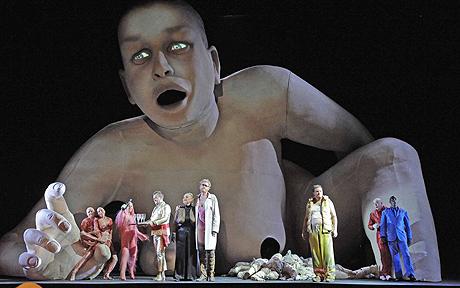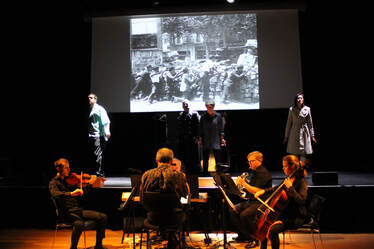|
Attended a performance last night of Le Grand Macabre at the Barbican, London. An immensely good performance and riveting from start to finish. It was great to have the London Symphony Orchestra on stage, which meant we could relish the score's fabulous textures which bristled and shimmered and hooted and blasted and everything in between. Simon Rattle was magisterial, of course. We were treated to a micro-staging by Peter Sellars which was confined by lack of space and sets but this wasn't really an excuse for limiting the props to lab coats, desks, laptops and a hospital bed which don't really belong in Breughelland; a constant video backdrop was even less relevant, displaying images from the Chernobyl disaster. Nothing we were looking at complemented the bizarre fantasies of the plot. Rather than entering a new universe, we found ourselves in a nuclear conference, albeit with some weird characters in attendance. Ligeti created a 'flea-market' of a musical score, one that would constitute an opera after the death of the genre. After all, his generation was somewhat obsessed with opera's demise: Kagel, Stockhausen, Boulez, the latter intent at one time upon burning down opera houses. But if, as Ligeti said, the idea was to create an anti-anti-opera - wouldn't you achieve that by writing an opera? Rather than 'bombing out' the acoutrements of the genre which anti-operas try to do, an anti-anti-opera should surely turn ur-opera on its head.
0 Comments
Leave a Reply. |
Edward LambertComposer and musician Categories
All
Archives
July 2024
|
|
Scores available by means of a Performance Restricted license from IMSLP
The Music Troupe
|
Contact Us |

 RSS Feed
RSS Feed
